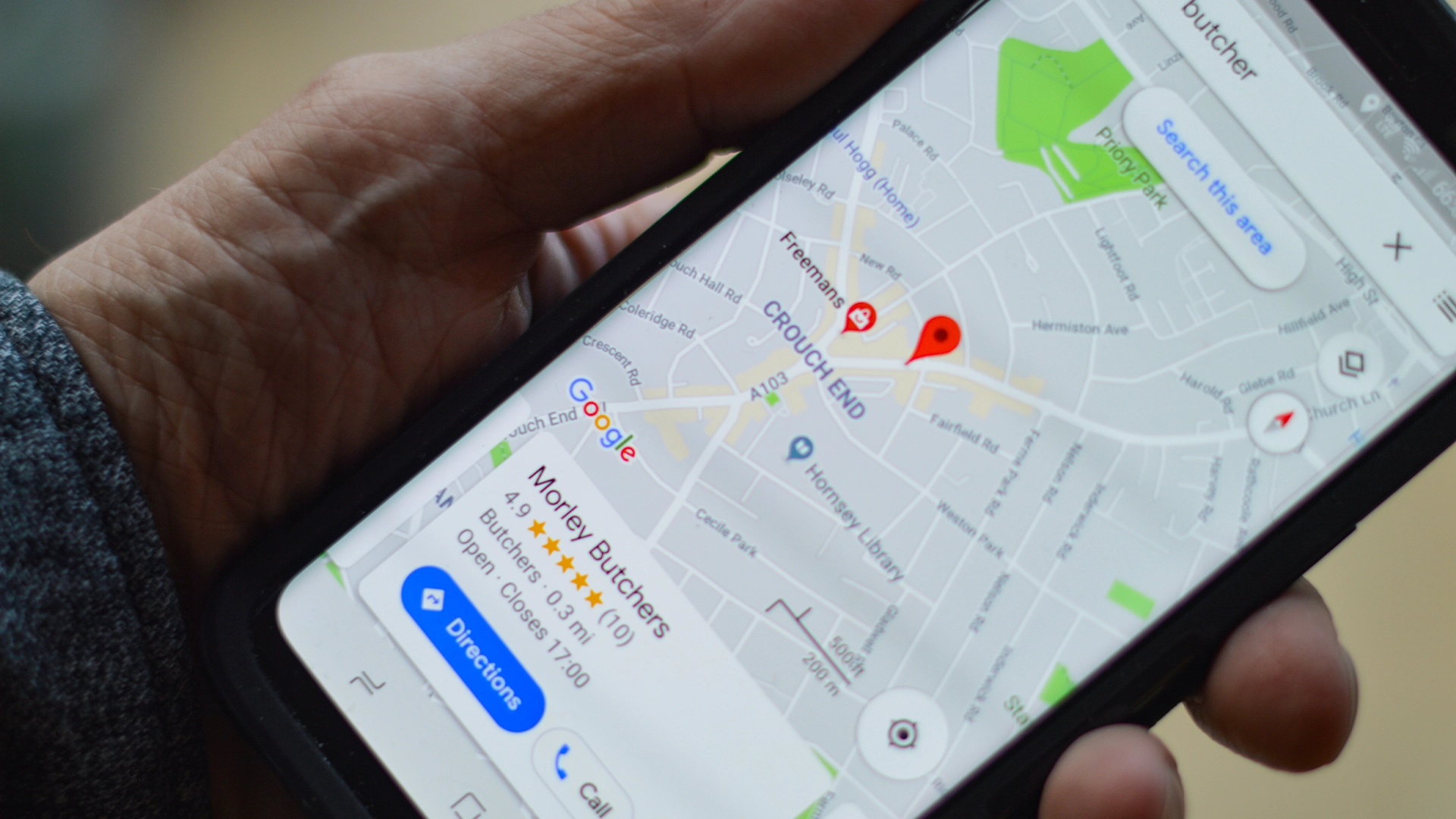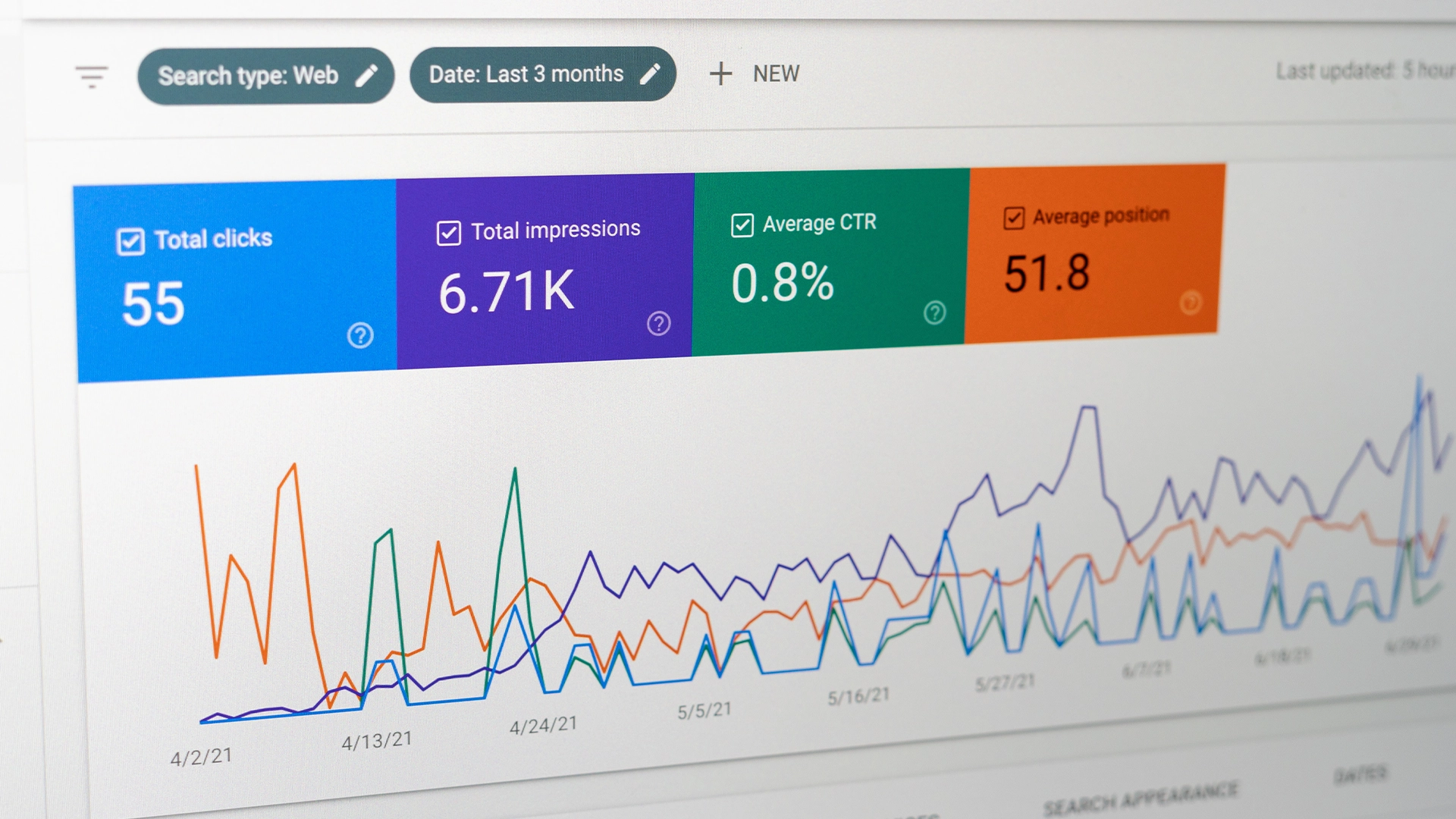Local SEO Tactics: A Guide to Dominating Local Search
The significance of Local SEO cannot be overstated, particularly with small to medium sized local businesses who rely on local targeted searches to gain traffic such as builders, roofers, coffee shops and small store owners. It’s not merely about optimising for generic searches that matters; it’s about strategically positioning your business to thrive within your specific niche and local community and thus improve local search visibility.
In this detailed guide, we’ll explore extensively the intricate world of Local SEO, providing a comprehensive exploration of strategies to enhance visibility across local searches, establish dominance within your niche market and rank higher for local searches.
46% of all Google searches are now local based searches for local businesses and services

Understanding the Local SEO Landscape
One of the fundamental aspects of a great UX is intuitive navigation and information architecture. Users should be able to easily find what they are looking for without feeling overwhelmed by various options or confused by the site structure in place. One of the most common reasons for users becoming frustrated with a digital product is due to poor navigation and information architecture.
Start by organising your content and information in a logical and structured manner which resonates with users. This can often be achieved by running user testing sessions to gauge how users would categorise their site, name their headings and other insights to build the design around. Local SEO transcends standard optimisation; it’s a tailored approach to connect with local customers actively seeking products or services within your local area. It involves fine-tuning your online presence and web platforms for location-specific searches, making your business more visible and accessible to the community and audience you are trying to serve.
Google My Business (GMB) Optimisation
Elevate your digital storefront by optimising every section of your GMB profile to ensure customers have full visibility of your products, services and how to find/contact you. From accurate business details to captivating images and compelling customer reviews, GMB serves as the cornerstone for local search visibility and the majority of local searches across the internet.
Local Keyword Research
Understand local keywords and phrases that local customers often use when seeking businesses like yours. This targeted approach enhances your relevance in local search results and significantly increases your chances of ranking higher than your competition.
Google Maps
Local businesses can leverage Google Maps as a powerful tool to enhance their local SEO and boost visibility within their community. Ensuring accurate business information on Google My Business (GMB) is crucial to providing your customers with the information they need to make a purchase decision and vital for local business SEO. This includes updating business hours, contact details, and a concise yet informative business description to illustrate your products and services in the local area and rank higher for local business searches. Google Maps relies heavily on this data to provide users with accurate and relevant local search results.
There are over 1.5 billion “near me” searches per month

Navigating Local Search Best Practices
To dominate your local online market, you must provide your customers with access to platforms and devices which allow them to interact with your business. Considering the growing influence of voice search and the prevalence of mobile devices being used for local searches, this will ensure you have a seamless and consistent experience across all channels which will significantly improve your local search presence.
Voice Search Optimisation
Ensure you create content that aligns with natural language patterns and caters to the questions users might search for using their natural speech and voice. This not only improves your visibility in voice searches but also resonates with the conversational queries of your local audience by communicating in their preferred style and tone.
Mobile-Friendly Website
Prioritise creating a seamless mobile experience across all of your websites and applications. Google favours mobile-friendly sites in local search results and more importantly favours mobile first websites which put the mobile user at the heart of the experience, emphasising the importance of a responsive website design for heightened visibility and ease of use.
Local Citations
Establish a consistent online footprint across your local search ecosystem by ensuring your business information is accurate and up to date across all types of directories and citation platforms. These types of sites can often show up in local search results and provide users the information they need to contact you without having to visit your website first. This not only aids local search rankings but also fortifies your business’s credibility in the specific local area or location.

Optimising On-Page and Off-Page Local SEO
A Local search SEO strategy should include a combination of on-page and off-page optimisation to really drive local visibility and results. By refining your website and optimising it for local search results, you position your business as an authority in your local area which ultimately showcases you as trustworthy and reliable local business.
Localised Content
Tailor your content strategy to address the unique needs and interests of your local audience by providing a range of useful information and resources which local users can obtain. From blog posts to product descriptions, include local keywords and popular local search terms throughout your content and insights that resonate with your community and local audience.
Local Link Building
Create strong connections within your community through a range of collaborative methods. Collaborate with local businesses, sponsor local events, and participate in localised community initiatives to build a network of high-quality local backlinks to your website and content, enhancing your website’s authority in local search results.

Leveraging Online Reviews and Reputation Management
Your online reputation is a powerful currency when trying to win local business online. Positive reviews not only influence new potential customers but also significantly contribute to your business’s prominence in local search results and rankings not to mention getting top placement on Google maps and Bing maps for businesses with high star ratings.
Encourage Reviews
Actively seek positive reviews from satisfied customers after they have interacted with your business. An optimised GMB profile, coupled with strategic high rating reviews, contributes to a positive online reputation and positive awareness for your organisation.
Respond to Reviews
Demonstrate your commitment to customer satisfaction by engaging with reviews once they have been placed. Responding to both positive and negative feedback ensures your customers feel equal and valued, showcasing a transparent and customer-centric approach to your business operations.

Analysing Local SEO Performance with Analytics
Monitoring and analysing your local SEO performance is a continual process which must be updated on a frequent basis in order to track performance accordingly. By leveraging analytical tools and platforms, you gain valuable insights which enable you to make more informed decisions and refine your strategies based on data and facts.
Google Analytics
Review the finer details of your website traffic, look into user behaviour, and conversions related to local searches to inform your next move. Uncover patterns and trends that inform your decision-making process and guide ongoing optimisations across your site which improve the user experience.
GMB Insights
You can also utilise tools such as GMB insights to understand how customers find your business, where they are located, and the actions they take across your site or app. This data provides a granular understanding of your local audience, local search intent and the entire local ecosystem which informs strategic decisions.

Future-Proofing Your Local SEO Strategy
Local SEO is a dynamic field that requires foresight especially with the emergence of new search technologies which will change the way people search. By embracing these emerging trends and technologies, you future-proof your strategy, ensuring your business remains at the forefront of local relevance and visibility.
Local Schema Markup
Elevate your visibility through the use of rich snippets and local search features by implementing local schema markup across your website and content. This provides search engines with detailed information about your business, its services and the important information customers need to know, enhancing your presence across local search results.
AI and Local Search
Stay ahead of AI advancements in search algorithms particularly in the near future with the use of smart devices throughout households such as Alexa and Siri. As machine learning becomes integral to delivering personalised and relevant local search results, being attuned to these changes positions your business for ongoing success.
Voice search
Voice search is becoming increasingly common in local search with the use of mobile devices and smart technology throughout the household. Businesses must continually enhance their local SEO strategy to ensure high visibility when users are searching for local products and services using voice commands.
Mastering Local SEO Dominance
Local SEO is not just simply securing a spot in search results; it’s about forging deep connections with your local audience and dominating your local market earning you a top spot across localised search results. By optimising your online presence and your local SEO strategy organisations can begin to understand the intricacies of the local search ecosystem. By staying ahead of emerging trends, your business can establish an authoritative position in local search results.
Embrace these detailed strategies, adapt them to your unique business context and industry, and witness the transformation as your business then begins to show higher across keywords and searches in your local area. As technology evolves and user behaviours shift, the mastery of Local SEO remains a dynamic journey which will require continuous optimisation, ensuring your business stays at the forefront of local relevance and visibility.
Frequently Asked Questions
Local SEO focuses on optimising a website to increase its visibility in local search results. It’s crucial for businesses as it helps them connect with local customers actively searching for products or services in the local area where the business operates, driving foot traffic and conversions.
While traditional SEO aims for broader visibility on a regional or global scale, local SEO targets specific geographic locations and smaller areas often for smaller and medium sized local businesses. It involves optimising for local keywords, creating Google My Business profiles, showing on Google Maps and acquiring local reviews to enhance local relevance and visibility.
Online reviews play a significant role in local SEO, influencing search rankings and consumer trust while also being prominent in search results across Google Maps. Businesses should actively encourage satisfied customers to leave positive reviews while promptly addressing any negative feedback to demonstrate responsiveness and commitment to customer satisfaction and care.
Local citations are mentions of a business’s name, address, and phone number (NAP) on external websites or directories which often drive significant amounts of traffic. They help establish the credibility and authority of a business in local search results by offering backlinks to their website and building credibility as a legitimate local business.
Yes, mobile optimisation is crucial for any local SEO strategy. Considering the increasing number of searches conducted on mobile devices, local businesses must create mobile friendly sites which are easy to use and responsive. Businesses should prioritise responsive web design, optimise page load speed, and ensure easy navigation and readability on mobile devices to enhance the user experience and search rankings.
Creating locally relevant content such as blog posts, articles, or guides tailored to address the needs and interests of the local audience will help to improve local SEO rankings. Collaborating with local events can be a good way to amplify local reach and engagement. Sharing local success stories, customer testimonials, or community involvement initiatives can also help to create connections and trust within the local community.
More interesting content...
Like this story? Share it on your social media...
For more of the latest content, why not subscribe to our mailing list...






